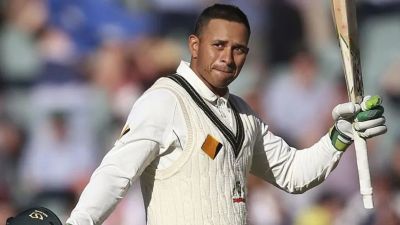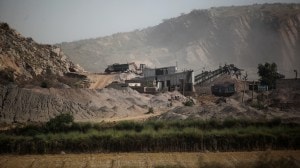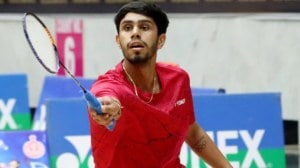His second innings
After a long stint in political wilderness, Imran Khan's Tehreek-e-Insaf Movement for Justice Party is undergoing a massive restructuring ...

After a long stint in political wilderness, Imran Khan8217;s Tehreek-e-Insaf Movement for Justice Party is undergoing a massive restructuring process. Though Khan is very enthusiastic about repackaging his party, there are a host of problems that haunt the party which never really took off.
8220;We have learnt a lot of lessons from 1997,8221; concedes Imran Khan, but is reluctant to share his new-found wisdom, at least for the time being. Khan is working with a former leftist politician, Mairaj Muhammad Khan, at trying to reinvigorate his party. Work has started at grassroots level through a membership drive. So far, there are few who are attracted by Khan8217;s political agenda.
Khan has preached against normalising relations with India, advocated closer ties instead with the Middle East and the Arab world and called for a rejection of the interference of international lending agencies in affairs of the Pakistani economy. Khan also calls for a stronger defence with more money to the armed forces and the fightagainst corruption on war-footing. 8220;Corrupt officials should be publicly hanged,8221; Khan told The Indian Express.
Khan now wants to change the party8217;s image after its dismal performance in the February 1997 elections. But more than the electoral debacle, what has hit the party was the departure of several key member of the party who were either sacked or resigned in protest against the former cricketer8217;s autocratic ways. The result: the party is much weaker today and it just survives on one man8217;s charisma which in fact is not enough for winning elections.
When Naseem Zehra, a former journalist and the party8217;s information secretary resigned in late 1997, she said that she was doing it on personal grounds. Later, however, Zehra said that the reason behind her move was that Imran was bringing in the very people that the party promised to replace. Zehra and a number of other party members resigned in protest against the induction of two politicians from the North West Frontier province NWFP, one of whomis an independent member of the NWFP provincial Assembly. Both these gentlemen are known to be active in the province8217;s politics primarily in the practice of what is commonly known as 8220;lotaism,8221; the art of buying loyalties of members of elected Houses in exchange for money or other considerations. By inducting the independent member of provincial assembly MPA, Khan8217;s party finally managed to get representation in the legislature.
But Zehra and other members of the party who have left are considered as the turncoats by members of the core group of the Tehreek-e-Insaf. One member says that most of those who resigned were, in fact 8220;asked to leave, since they were a hindrance.8221; In the case of Zehra, her poor showing during a televised debate on Pakistan Television prior to the 1997 elections angered many within the party. Many of Khan8217;s inner circle comprises men and women who are professionally sound, but lack the expertise needed to win elections in Pakistan. 8220;We did not know how to cheat,8221; saidKhan, when asked why his party lost in 1997. 8220;This is over-simplifying the issue,8221; contends Amir Khan, a local PML-N supporter who worked in the Lahore constituency from where Nawaz Sharif won again Khan hands down. Local politicians and foreign diplomats alike laugh at Imran Khan8217;s pronouncements. Even prime minister Nawaz Sharif8217;s party, the PML-N, tolerates his presence in their stronghold of Lahore since they are aware of the lack of support for Khan8217;s party. One local leader calls the Tehreek-e-Insaf a 8220;ladies8217; tea party,8221; because of all the high-society begums who form part of the core group of campaigners.
While Imran Khan is the central character of the Tehreek-e-Insaf, many say that he also is the weakness of the party at times. The Sita White scandal, in which an American woman claimed that Khan was the father of her two-year-old daughter, may have cost the party a lot of votes. Many political observers say that Khan is now a spent force. 8220;He was the main attraction in the 1997 electioncircus. Now he is a has-been,8221; says an article in The News, an English language daily. Khan, however, thinks otherwise. And he is preparing for 8220;battle8221; once again, and says cryptically that it can 8220;happen any day.8221; But critics say that while his agenda may have mass appeal, it his autocratic ways that are hurting the party8217;s prospects. 8220;Imran Khan sees himself as a captain of a glorified cricket team,8221; says Muhammad Nawaz, a political analyst, adding 8220;the problem is that the field is much bigger than he imagines and he is not a captain who can impose his decisions on others. This is democracy, a concept that Khan is unfamiliar with.8221;
As Khan tries to begin his second innings in politics, the enormity of the field and the number of players will continue to baffle him.
- 01
- 02
- 03
- 04
- 05































